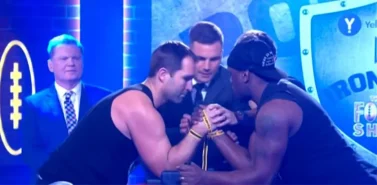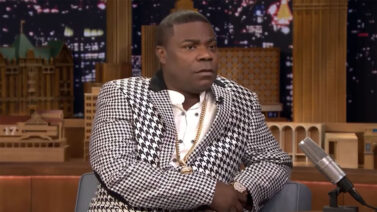
Aussie Stars Who Overcame Extreme Adversity You Didn’t Know About.
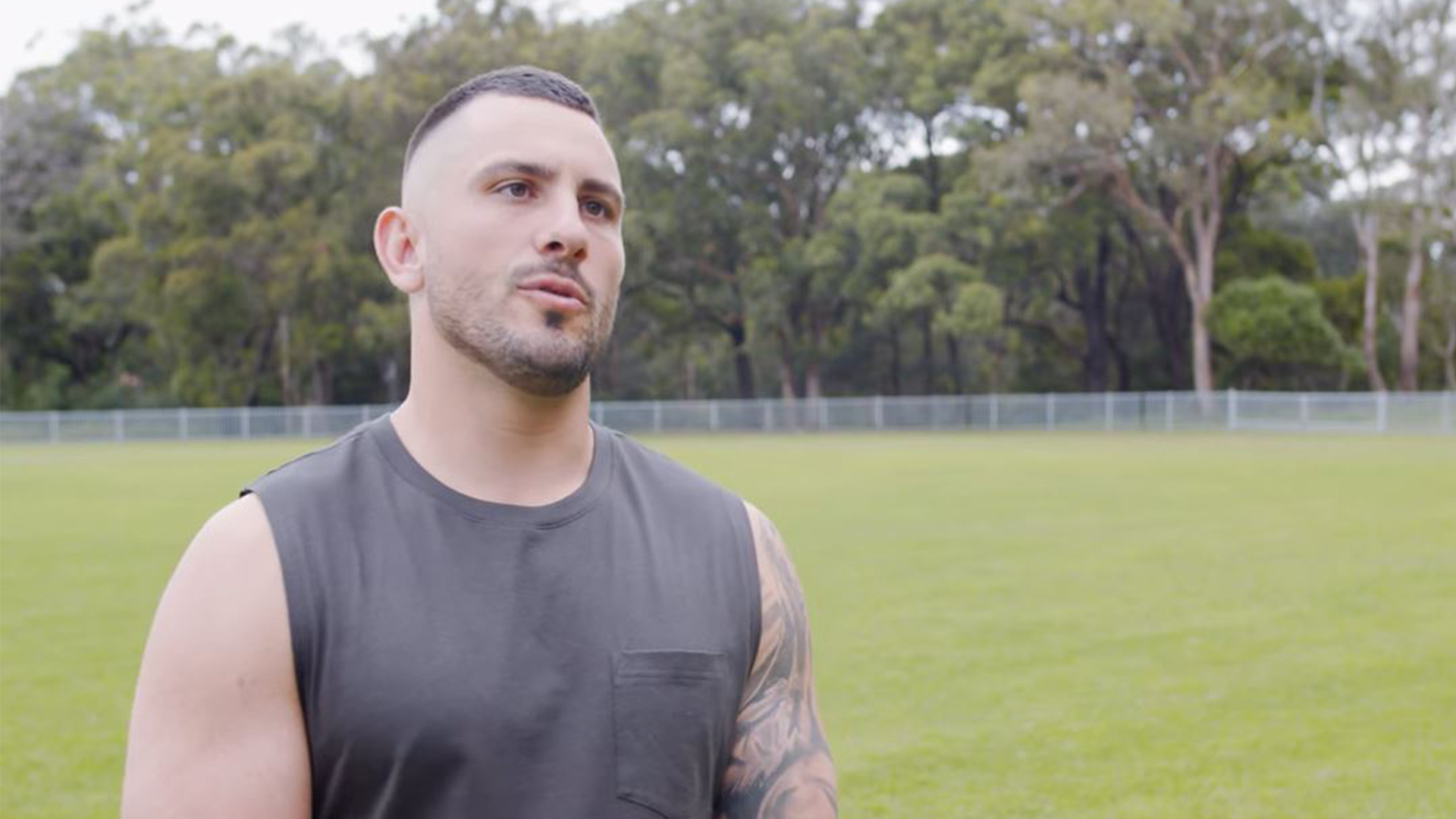
As human beings we can quite often get bogged down in the obvious measures of success. We all do it, it’s normal.
The amount of money you make, the profession you work in, the things you win – generally, this is what we use to determine if an individual is truly accomplished. But do we overlook what could be the ultimate measure of success?
We’re all different and come from different backgrounds, but one thing that links us all is adversity. No matter who we are, there’s at least one point in our all lives when we’re faced with a tremendous hurdle to overcome – and it’s our ability to get through that that should determine if we’re a success. Sure, sometimes it can be hard to see that light at the end of the tunnel but we should take great solace in the fact that we’re not alone – we all struggle – and have hardships to overcome.
A wise man once said, “It’s not about how you fall, it’s about how you get back up that counts,” – and these great Aussie athletes are certainly living proof of that.
Jack Bird (rugby league)
Touted as a young footy prodigy from a very early age, Jack Bird seemed destined to become an NRL superstar – that was until he was struck down by a debilitating condition at the age of 16. All of a sudden Bird went from a very athletic teenager to someone who struggled to get into a car or lay down in bed without feeling dagger-like sensations throughout his body.
His parents took him to neurosurgeons, physiotherapists, orthopaedic surgeons, and even a health clinic in Sacramento, California, but no one could pinpoint exactly what was causing the talented teenager so much pain.
With Bird’s condition getting worse, his father, Mick, decided he would take him to the hospital and not leave until he was given the appropriate diagnosis that was not only ruining his son’s budding footy career, but more importantly, his life. As fate would have it, a rheumatologist was present at the hospital on the day and decided to run some tests which proved the teenager was indeed suffering from rheumatoid arthritis – a condition that affects only one in about 10,000 teenagers.
Having finally been handed a diagnosis, the family willingly invested $500 per week in medication to treat the condition – which immediately relieved the pain sensations and allowed their young son to return to training and play the game he loves. Bird still suffers from rheumatoid arthritis and requires $26,000 worth of medication annually to train and take to the field.
Emily Seebohm (swimming)
Unbearable cramps, sharp back pain, stomach aches – these were just some of the symptoms that Aussie pool star, Emily Seebohm, dismissed and put down to her gruelling training regime for the majority of her life. Despite the pain, Seebohm still managed to take home a gold medal at the 2008 Beijing Olympics as well as silver at the 2012 London games.
But it was during her preparation for Rio in 2016 that she realised that these symptoms had to be more than just a product of her training. And so, it was at that point that she visited her gynaecologist who instructed her that she could be suffering from Endometriosis (a disorder where tissue that should line the uterus grows outside the uterus). Later that year, Seebohm decided to undergo surgery to treat the chronic issue which has plagued her for the majority of her career.
Seebohm isn’t completely cured, however, she’s stated that the intensity of her symptoms has minimised. And in her first major competition since the surgery, at the World Championships last year, she went on to win gold – becoming the only Australian to secure an individual gold medal at the event.
Matthew Wade (cricket)
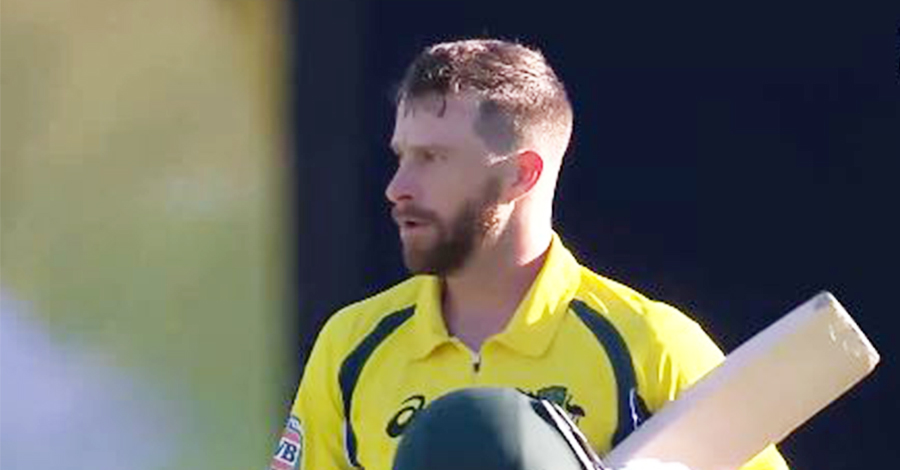
Much like Jack Bird, a young Matthew Wade was quickly zeroing in on a professional sporting career in either cricket or Australian Rules Football before his life was turned upside down. At the age of 16, Wade was hit in the groin and after feeling prolonged discomfort, he decided to see a specialist who discovered a tumour on his testicle.
Diagnosed with testicular cancer, Wade was forced to rethink his future as medical professionals recommended he stop competitive training while he underwent two cycles of chemotherapy. But ever the fighter, Wade pushed on, despite the treatment taking its toll on his body. And at the age of 19, Tasmania rewarded him with a rookie contract before he forged his path with Victoria.
Layne Beachley (surfing)
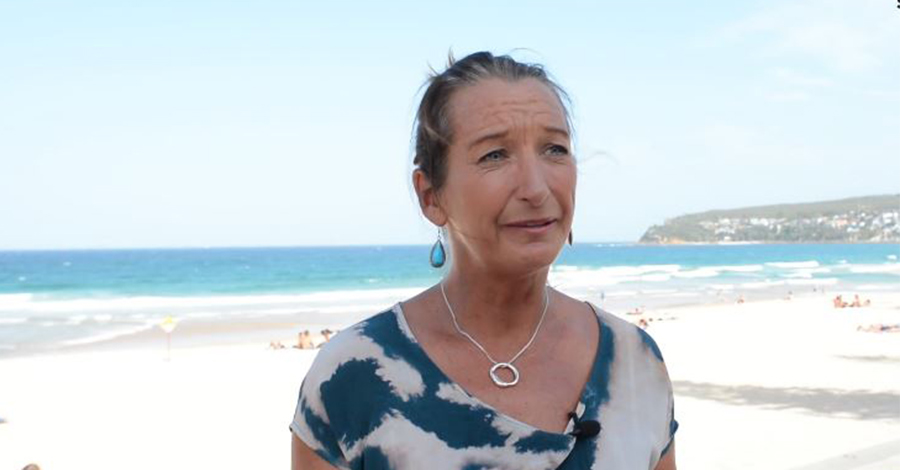
Ever since finding out she was adopted at the age of seven, Layne Beachley was determined to become the best in the world at something, and she soon decided that something was going to be surfing. It was this undying motivation that earned her a place on the world tour at just 16 and she claimed her first win at the age of 20 – but that maiden event win nearly cost her her career. For the best part of a year, Beachley was drained both mentally and physically all the time, and after visiting a specialist, she was diagnosed with chronic fatigue syndrome, which developed as a result of years of overtraining and poor nutrition.
Beachley managed the condition and continued surfing but less than three years later it returned and had a more devastating impact on her physical and emotional health. Beachley was forced to step away from the tour and the inability to do what she loved coupled with the symptoms of being constantly exhausted, forced her into a pit of depression. Never one to give up, Beachley sought help to deal with her deteriorating emotional and mental health and made some permanent changes to her diet which saw her not only return to compete on the tour, but fulfil her early childhood dream of becoming the best. In 1998 she won the first of what would be an unprecedented six consecutive world titles.
Paul Wade (football)
He’s considered one of our greatest-ever Socceroos who featured at the Olympic Games in 1988 and was given the honour of captaining and playing for his country for over a decade. Yes, Paul Wade will forever be considered a legend of the game in Australia, but it wasn’t until well after he retired that the public came to know the condition Wade had been battling his whole life. During a live interview in 2001, Wade suffered a seizure on air – which prompted him to publically address his chronic struggle with Epilepsy.
Not long after the ex-footballer’s admission, he decided to undergo brain surgery to prevent the cause of the seizures. The surgery did carry certain risks and required the removal of a part of his brain – but it proved to be a success as Wade, despite suffering from some short-term memory loss, now enjoys a seizure-free life. The former Socceroo currently splits his time as a sports commentator, motivational speaker and ambassador for a number of charities including Epilepsy Action Australia.
Call 13 15 15 or chat to us now for free advice
Chat nowFind out how much you can claim.
Get startedRelated articles.
Do I have a case?
Our senior lawyers will assess your case for free.
